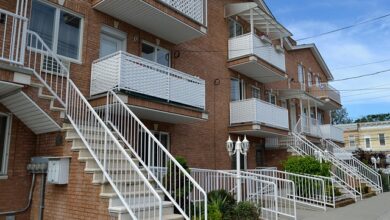Renters Insurance in Singapore: Why You Need It and How to Get It

While homeowners in Singapore are well-versed in the importance of property insurance, renters often overlook the need for similar protection. Renting a home or apartment doesn’t exempt you from risks like theft, fire, water damage, or personal liability. Renters insurance , though not mandatory in Singapore, is an affordable way to safeguard your belongings and protect yourself from unexpected financial burdens. In this article, we’ll explore why renters insurance is important, what it covers, and how you can obtain a policy that suits your needs.
Why Renters Insurance Is Important
Many tenants assume that their landlord’s insurance will cover their personal belongings or liability in case of an accident. However, this is a common misconception. Landlord insurance typically only covers the building structure and the landlord’s property—not the tenant’s possessions or legal responsibilities. This is where renters insurance comes in. Here’s why it’s essential:
1. Protection for Your Belongings
As a renter, your personal property—such as electronics, furniture, clothing, and jewelry—is not covered under your landlord’s insurance. If your belongings are damaged, stolen, or destroyed due to events like fire, theft, vandalism, or water leaks, renters insurance can help replace them. Without coverage, you’d have to bear the full cost of replacing these items out-of-pocket.
2. Liability Coverage
Accidents happen, and renters insurance includes liability protection to safeguard you financially if someone is injured on your rented property or if you accidentally cause damage to the rental unit or someone else’s property. For example:
- A guest slips and falls in your apartment, resulting in medical bills or a lawsuit.
- You accidentally leave the bathtub running, causing water damage to the unit below.
Liability coverage ensures you’re protected from costly legal fees and settlements.
3. Additional Living Expenses (ALE)
If your rental becomes uninhabitable due to a covered peril—such as a fire or flood—renters insurance can cover temporary accommodation costs, meals, and other living expenses while repairs are being made. This prevents you from having to dip into savings or face financial strain during an already stressful time.
4. Affordable Peace of Mind
Renters insurance is relatively inexpensive compared to other types of insurance. Premiums in Singapore typically range from SGD 100 to SGD 300 annually, depending on factors like coverage limits, deductible amounts, and the value of your belongings. For such a small cost, renters insurance offers significant peace of mind and financial security.
What Does Renters Insurance Cover?
Renters insurance policies generally include three main components:
1. Personal Property Coverage
This protects your belongings against specified perils, such as:
- Fire or smoke
- Theft or burglary
- Water damage (e.g., burst pipes or leaks)
- Natural disasters (e.g., windstorms)
It’s important to note that certain high-value items, like jewelry, art, or collectibles, may have coverage limits. You can purchase additional endorsements or “floaters” to ensure these items are fully protected.
2. Liability Coverage
Liability protection covers you if you’re held responsible for:
- Bodily injury to others (e.g., a visitor slipping and falling).
- Property damage caused by you or your pets (e.g., your dog damaging a neighbor’s fence).
Most policies offer liability limits starting at SGD 100,000, but higher limits are available for an additional cost.
3. Additional Living Expenses (ALE)
If your rental becomes unlivable due to a covered event, ALE reimburses you for costs associated with temporary housing, food, and other necessities. Coverage typically lasts until your home is repaired or you find alternative accommodations.
What Isn’t Covered by Renters Insurance?
While renters insurance offers valuable protection, it doesn’t cover everything. Common exclusions include:
- Flood Damage: Standard policies usually don’t cover flooding. You may need separate flood insurance, especially if you live in a low-lying or flood-prone area.
- Earthquakes: Earthquake coverage must be purchased as an add-on.
- Intentional Acts: Damage or injuries caused intentionally by you or a family member are not covered.
- Wear and Tear: Normal wear and tear or maintenance issues are excluded.
- Business Equipment: High-value business equipment used in your rental may require a separate commercial policy.
Always review your policy carefully to understand its limitations and consider additional coverage if needed.
How to Get Renters Insurance in Singapore
Obtaining renters insurance in Singapore is a straightforward process. Follow these steps to secure the right policy for your needs:
1. Assess Your Needs
Start by taking inventory of your belongings. Make a list of all valuable items, including approximate values, and take photos or videos for documentation. This will help you determine how much personal property coverage you need. Consider factors like:
- The replacement cost of your belongings.
- Whether you own expensive items that require additional coverage.
- Your risk tolerance for liability claims.
2. Research Providers
Several reputable insurance companies in Singapore offer renters insurance, including:
- NTUC Income
- AXA Insurance
- Aviva
- MSIG Insurance
- FWD Insurance
Compare quotes from multiple providers to find the best rates and coverage options.
3. Choose Between Actual Cash Value (ACV) and Replacement Cost Coverage
When purchasing renters insurance, you’ll need to decide between two valuation methods:
- Actual Cash Value (ACV): Pays out the depreciated value of your belongings at the time of loss.
- Replacement Cost Coverage: Pays the full cost to replace your items without deducting for depreciation. While this option has higher premiums, it provides better protection.
4. Customize Your Policy
Tailor your policy to your specific needs by adding optional riders or endorsements. For example:
- Valuable Items Floater: Covers high-value items like jewelry, watches, or art.
- Flood Coverage: Protects against water damage caused by flooding.
- Pet Liability: Extends liability coverage to damages caused by your pets.
5. Review Discounts
Many insurers offer discounts that can reduce your premium. Examples include:
- Bundling Discounts: Combine renters insurance with other policies (e.g., car or travel insurance) for savings.
- Security Discounts: Install smoke detectors, burglar alarms, or smart home devices to qualify for reduced rates.
- Loyalty Discounts: Receive reduced rates for being a returning customer.
Tips for Saving on Renters Insurance
- Increase Your Deductible: Opting for a higher deductible can lower your premium, but ensure you can afford the out-of-pocket cost during a claim.
- Bundle Policies: Combining renters insurance with other types of insurance (e.g., auto or health) often qualifies you for discounts.
- Improve Home Security: Installing security systems, locks, or fire extinguishers can reduce your risk profile and lower premiums.
- Shop Around: Compare quotes from multiple insurers to find the best deal.
- Review Annually: Reassess your coverage and compare quotes annually to ensure you’re getting the best rate.



